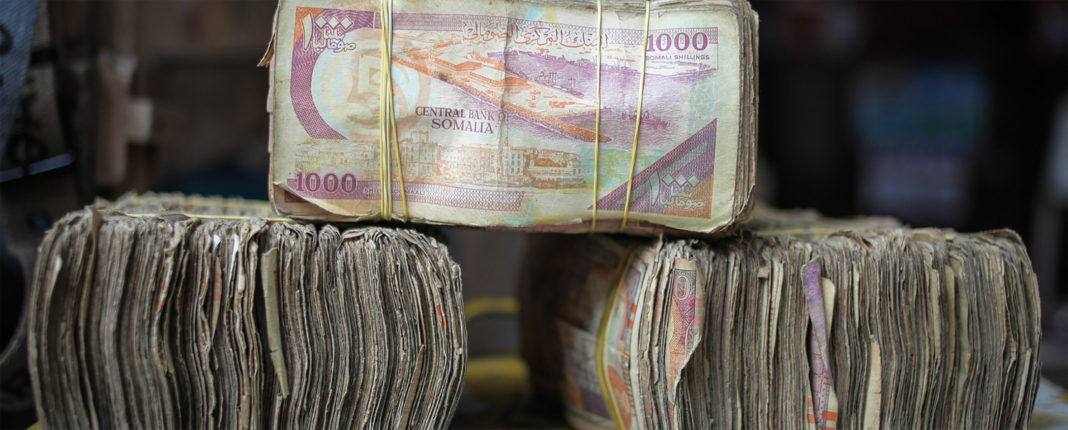‘Diaspora is the biggest development community that exists in the world’, according to Pedro De Vasconcelos, manager of IFAD‘s Financial Facility for Remittances. However, its potential is still largely untapped.
In 2015, over 200 million migrants sent home about 450 billion dollars in remittances. An amount which is three times the official development assistance and exceeds foreign direct investments in most countries. Recent estimates by the World Bank suggest a decline of 2.4 percent in 2016, whilst a growth of 3.3 percent is expected in 2017.
De Vasconcelos strongly believes that the money migrants send back to their home countries can be leveraged to stimulate investments, boost development and pull people out of poverty.
How to exploit migration-related inflow of capital to spur growth and build prosperity? Reducing transaction costs is not enough to, according to De Vasconcelos. Migrants and their families need financial inclusion, which is access to basic financial services, such as payments, savings, including current accounts, credit and insurance. Senders and recipients of remittances need options to the cash-to-cash system.
Where cash is king
A World Bank and IFAD report indicates that ‘two billion or 38 per cent of working-age adults globally have no access to financial services delivered by regulated financial institutions, with 73 per cent of poor people unbanked’. However, millions of them receive remittances.
‘The reason they are not banked is because those who provide financial services think that these people are poor and have no money. That’s it’, De Vasconcelos told Degrees of Latitude in an exclusive interview.
That’s a ‘cliché’, he said. They get regularly what is equivalent to a monthly salary. ‘The majority of them want financial democracy, [but] they are living in a world where cash is king… They are equipped to some extent, with a little more of help, to be part of a financial democratic revolution’, he added. ‘Give them the options and see if cash remains king’.
When remittances received through regulated financial institutions, families plan for long-term investment goals, savings can be reinvested in the local community and they can “function as a buffer against instability at the macroeconomic level”, according to IFAD and World Bank. ‘Think of you’, without a banking account where to credit wages, without a credit card, no access to online banking services or without a credit history: ‘What do you do? You are going back to cash and hopefully you have it, but that’s it. How can you leverage anything? What you are having in your hands is what you have and what you will get’, De Vasconcelos said.
In the agricultural sector, for instance, financial institutions do not provide services or loans to farmers on the assumption that agriculture is a risky business without taking into consideration the remittances they receive. ‘Financial institutions just don’t see the opportunities that exist [with remittances]’, he said. ‘It is a sector of complete missed opportunity over missed opportunity … and it’s not just doing good, doing the right thing, it’s a win-win situation.’
De Vasconcelos has no doubt: ‘Financial inclusion is the biggest opportunity that exists.’
Learning, saving and investing
Financial inclusion requires the implementation of strategies to let offer and demand meet each other. Families need financial literacy to manage financial services, but financial institutions need to understand that banking senders and recipients of remittances is possible.
With the Financial Facility for Remittances established ten years ago, IFAD aims at testing mechanisms for accessing remittances in rural areas, but also promoting investment and entrepreneurship, as well as diaspora engagement in their countries of origin. ‘We are a laboratory’, De Vasconcelos said. ‘We saw dramatic changes’ testing new financial products with financial literacy programmes.
In Sri-Lanka, for instance, a project in collaboration with the Hatton National Bank helped senders and recipients gain access to financial services. The bank designed an account targeted for the migrants’ needs, linking savings to remittances and then providing housing or business loans. After the pilot, demand increased and Hatton Bank opened several branches offering remittance services.
In Italy, IFAD engaged Philippine diaspora with a training to learn how to budget, manage daily expenses, and increase savings. ‘That was a paradigm change … Now that [they] have saved, that know how to save, we showed that there are other options … Don’t give the money away, maybe you can invest.’ Many decided to actually invest in agricultural businesses in their communities.
Scaling up
IFAD’s projects are pilots designed to show what works and what doesn’t. Scaling up requires the involvement of multiple actors, from private sector to governments, and the mainstreaming of remittances into the programmes of many international organizations, according to De Vasconcelos. ‘Ministries of agricultures, [for instance]. It is imperative they understand that their target groups receive remittances. And the majority of them not even know or care. They think that it’s not their problem’, he said.
On 16 June, the International Day of Family Remittances will be celebrated at the United Nations headquarters, in the context of the fifth Global Forum on Remittances just one month before the High-Level Political Forum that will assess the advancement in the implementation of the first 10 Sustainable Development Goals. ‘…. If you want to achieve the SDGs, you have to look at this phenomenon that is affecting one out of ten people in planet.… One remittance affects five people on average’, De Vasconcelos stressed.
Maybe remittances are not the silver bullet, but while policymakers try to find solutions on ‘how to transform billion into trillions, and that’s what you need to achieve the goals’, migrants have sent trillions of dollars back home, according to De Vasconcelos. ‘Can you maximise that dollar when they send it? Can you try to make that dollar convert into two … by offering more options? You could do that. That’s the beautiful part of this story, it’s not a question of money for once. It’s a question of will, it’s [the] question of facilitating. The money is there, what you need is just the actors to make it happened’, he said.
‘Remittances are tricky’, De Vasconcelos noted. The risk of doing nothing, of remaining in a cash-to-cash system is to keep families dependent on what they receive from abroad.
Follow Degrees of Latitude for regular updates on Remittances and Financial inlcusion.
Photo credits: AU/UN/Stuart Price



